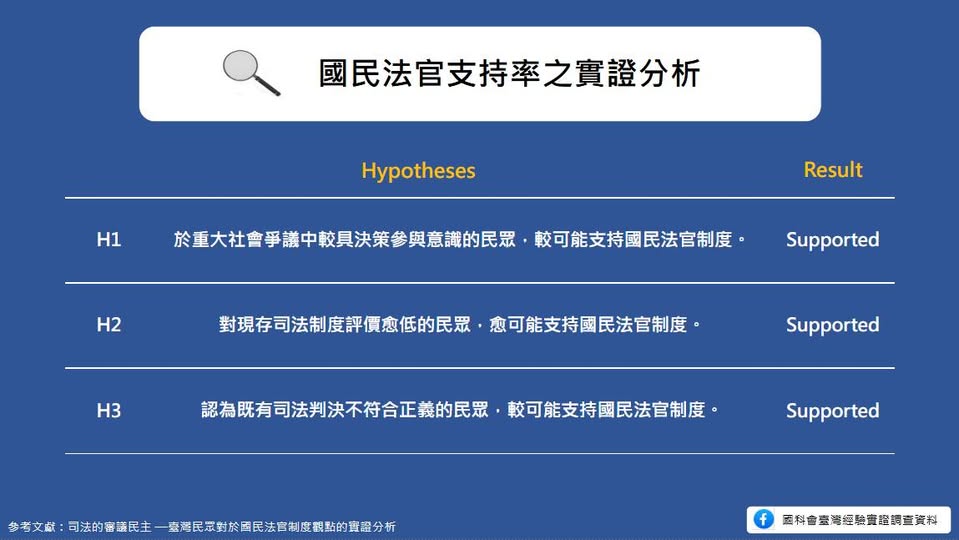Analyzing the factors that influence public support for the Citizen Judge system
Nearly three years after the launch of the Citizen Judge system, debates over whether verdicts are fair have never ceased. A recent TVBS feature noted that in major cases such as murder and drunk-driving fatalities, citizen judges tend to hand down harsher sentences compared to the past. This has also led some defendants, aware of the risk of heavy penalties, to pursue reconciliation with victims more quickly. In recent years, the number of drunk-driving violations, prosecutions, and fatalities has all shown a declining trend. As the number of cases involving citizen judges increases year by year, the system will expand in 2026 to apply to cases with a minimum statutory sentence of ten years or more. According to TVBS survey data, 68% of the public expressed support for this expansion, but 58% also worried that media coverage and public opinion could unduly influence citizen judges’ decisions.
In fact, political scientist Yu-Hsiao Lee of Michigan State University and Chung-li Wu, Director of the Institute of Political Science at Academia Sinica, used 2019 survey data from the Taiwan Database for Empirical Legal Studies (TaDELS) to analyze the factors influencing public support for the Citizen Judge system. Their study found that, aside from citizens who hope to directly participate in resolving major policy disputes, those who hold a lower opinion of judicial institutions (courts), and those who believe judges generally hand down sentences that are “too lenient,” are more likely to support the Citizen Judge system.

However, the two scholars also pointed out that since the survey was conducted before the Citizen Judge system was implemented, it could not reflect public opinion on the system as it currently operates. At present, although surveys released by the Judicial Yuan indicate that most people show significantly increased trust in the judiciary after serving as citizen judges—and that the majority are willing to participate in trials again—societal attitudes continue to shift. It remains unclear whether the earlier tendency of citizens with low trust in the judiciary to support the Citizen Judge system can explain today’s support for, and concerns about, the system’s expanded application. This issue requires ongoing attention and in-depth discussion from all sectors in order for the system to be refined and improved.
For those interested in exploring how Taiwanese society views judicial reform, sentencing, and public participation in trials, more related studies and data can be found in the Taiwan Database for Empirical Legal Studies (TaDELS), which is freely available to researchers and those concerned with judicial issues.
Original links:Deliberative Democracy in the Judiciary: Taiwanese Public Opinion on the Citizen Judge System

